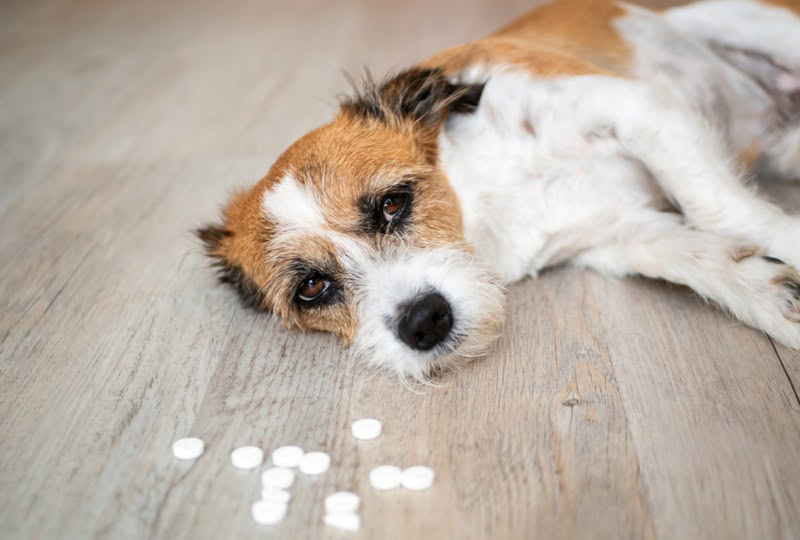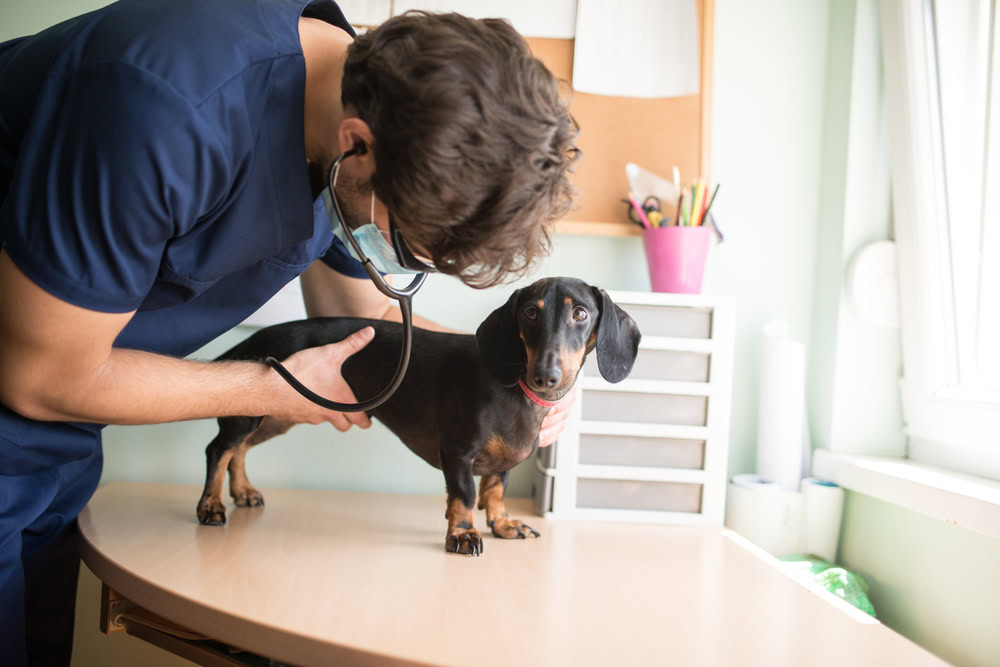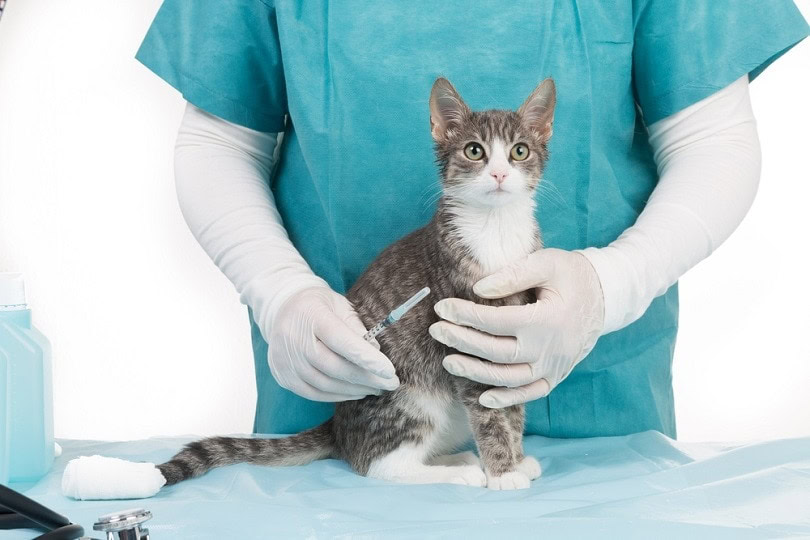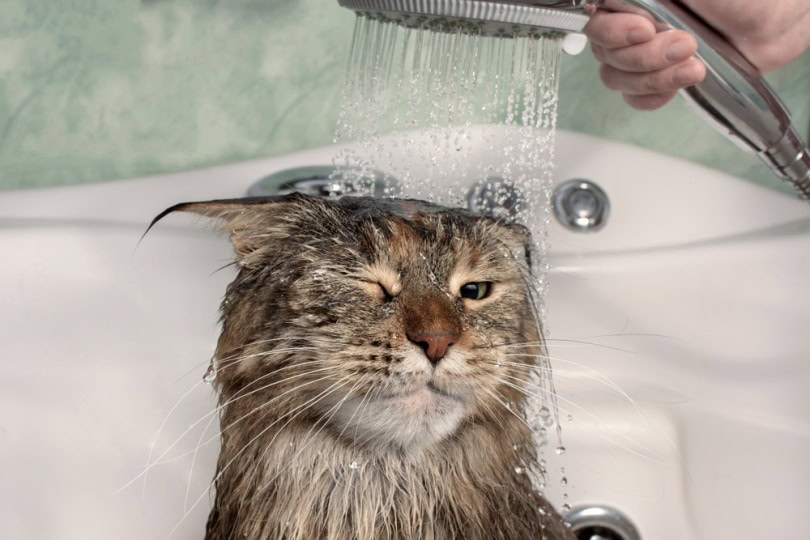VET APPROVED

The information is current and up-to-date in accordance with the latest veterinarian research.
Learn more »Click to Skip Ahead
How Can People Participate?
Pet Poisoning Statistics
Most Common Pet Poisonings
Signs of Pet Poisoning
What to Do If You Suspect Your Pet Ingested a Poisonous Substance?
Tips for Pet Poison Prevention
What Else Can Pet Owners Do to Be Prepared?
Is There Anything Else I Need to Know About Pet Poisonings?
National Animal Poison Prevention Week is an annual event held during the third full week of March each year. In 2025, it was from March 16th to 22nd.
This week helps educate pet owners on what can poison their pets, how to spot the signs of poisoning, and how to help pets if they exhibit such signs. Since 1962, the third week in March has been designated as National Poison Prevention Week by the U.S. Public . The goal is to raise awareness about potential pet poisonings and provide steps for prevention. Let’s learn more about Pet Poison Prevention Week in this article.

Why Is Pet Poison Prevention Week Important?
The American Society for the Prevention of Cruelty to Animals (ASPCA) Animal Poison Control Center (APCC) has been handling cases and helping pet parents in the U.S for nearly 45 years. As can be read on their website, only in 2021 “the team assisted 401,550 animals of all sizes and species across all 50 states, with cases ranging from gardening product toxicity to essential oil ingestion.” Common household items such as cleaners, plants, human medications, and even food can be toxic to pets.
Pet Poison Prevention Week is important for pet owners for a number of reasons. Firstly, people need to know what items are potentially dangerous for their pets so they can prevent them from coming into contact with these substances. Secondly, it’s crucial that pet owners understand the signs of a pet poisoning so that they can seek immediate help if necessary. Finally, the event serves as a reminder for people to take proactive steps to keep their pets safe and healthy.

How Can People Participate?
Pet Poison Prevention Week is an opportunity for people to raise awareness about pet poisonings and promote preventive measures.
- Spreading the word on social media using appropriate hashtags
- Talking to friends and family about the potential dangers of pet poisonings
- Educating their local community through posters or events
- Contacting their local veterinary office to find out more about responsible pet ownership
- Checking their home for items that could be poisonous to pets
- Researching pet-safe products and plants
By becoming informed and raising awareness, people can ensure that their beloved pets are safe from accidental and very common poisonings.

Pet Poisoning Statistics
Pet poisoning is a serious issue that can have devastating consequences.
- In 2021, the ASPCA Animal Poison Control Center (APCC) assisted in 401,550 cases of pet poisoning.
- The top toxin and making up more than 17% of total calls are human over-the-counter (OTC) medications.
- Food products were the third most common type of pet poisoning cases, making up 14% of APCC cases last year.
- During the pandemic, there was a 43% increase in call volume for pet poisonings compared to the previous year.
- Baker’s yeast, brewed coffee, and bread dough were the top three types of cases that increased more than 200% during the pandemic.
- In 2022, the ASPCA Animal Poison Control Center (APCC) experienced a 22 percent increase in calls over the prior year.

What Are Some of the Most Common Pet Poisonings?
Some of the most common pet poisonings include chocolate, raisins, rodenticides, human medications, insecticides, and plants. Additionally, pets can become sick by ingesting items such as zinc-containing coins and batteries. Keep these items out of reach from curious pets to avoid any potential danger.

What Are the Signs of Pet Poisoning?
Depending on the type of poison, signs of poisoning can vary. Some common signs include drooling or foaming at the mouth, lip licking, vomiting, diarrhea, difficulty breathing, incoordination, loss of appetite, lethargy, tremors, and even seizures. If you notice any of these signs in your pet, contact a veterinarian or animal poison control center right away.
What to Do If You Suspect Your Pet Ingested a Poisonous Substance?
If you suspect that your pet has ingested something dangerous, it is important to act quickly and seek medical attention from your veterinarian or an animal poison control center. The best approach is to stay calm and contact the experts for help as soon as you notice the problem. Do not try to make your pet vomit, as this can cause more harm than good. Additionally, it is important to bring a sample of the substance or its packaging with you when seeking medical help for your pet.


The 10 Tips for Pet Poison Prevention
This National Animal Poison Prevention Week, it’s important to remember that prevention is the best way to keep your beloved pet safe. By implementing some of these tips, people can significantly reduce the risk of their pets being exposed to potentially toxic items and substances.
- Keep all household items, cleaning products and medications out of reach from pets.
- Securely store all food products in cabinets or shelves that are not accessible to pets.
- Don’t leave any food or drinks unattended in areas where pets have access.
- Educate yourself on plants and flowers that may be poisonous to your pet, such as lilies, which are deadly to cats, oleanders, and many others.
- Make sure all trash cans are securely covered so that pets cannot gain access to the contents.
- Be especially careful with certain foods, such as garlic and onions, chocolate, and caffeine, which can be deadly to pets.
- Never give your pet human medications unless instructed by a veterinarian.
- Consider pet-safe products when cleaning your home.
- Keep an emergency contact list of animal poison control centers handy in case of an emergency.

What Else Can Pet Owners Do to Be Prepared?
Yes, it is a good idea for pet owners to contact their local vet’s office or animal poison control center for resources on how to handle potential poisoning emergencies before they occur. Keep their number handy in case of an emergency, and make sure all pets are properly tagged with updated contact information. It is also important to familiarize yourself with the signs of pet poisoning and how to react quickly in an emergency situation. Finally, spread awareness about pet poisonings by talking to friends and family or through local events or posters.
Is There Anything Else I Need to Know About Pet Poisonings?
Pet owners should be aware that some of the most common pet poisonings are preventable. Being prepared and staying informed can help pet owners protect their furry friends from potential danger. Knowing what to look out for and how to act quickly in order to get proper medical attention is key in these situations, so it’s important to take the necessary steps to be prepared.


Conclusion
Pet Poison Prevention Week, occurring during the third week of March every year, is a great opportunity to remind pet owners of the potential dangers of pet poisonings, as well as how to prevent them. By spreading awareness and taking proactive steps such as researching what items are safe for pets, being mindful of plants in your home, and knowing the signs of poisoning, we can all help keep our beloved pets safe from harm.
- Related Read: Pet Poison Prevention Awareness Month: How to Prepare
Featured Image Credit: Chendongshan, Shutterstock










